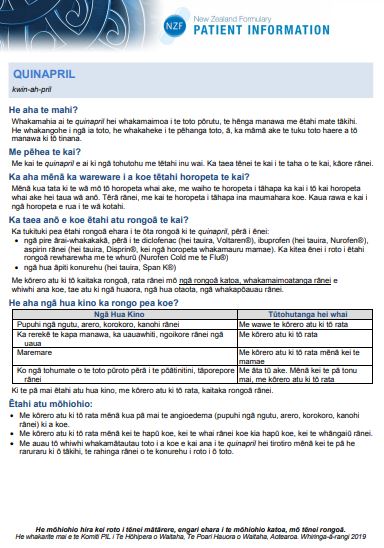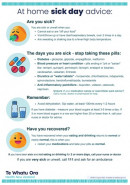Here are some things to know when you're taking quinapril. Other things may be important as well, so ask your healthcare provider what you should know about.
Monitoring
Your doctor will arrange for you to have blood tests and blood pressure checks before you start taking quinapril and during your treatment, especially when you first start taking it. This is to check how it is working and to check your kidneys and potassium levels.
Have a sick day plan
If you have diarrhoea or are vomiting from a stomach bug, or are dehydrated from another illness, it’s important to let your GP know, as they may advise you to stop taking your quinapril for a few days, decrease your dose and start again when you feel better.
Be careful when taking some pain relief medicines
ACE inhibitors can be used to protect your kidneys from damage if you have diabetes. However, if you are taking quinapril and diuretics (water pills), the combination of these with NSAIDs (anti-inflammatory pain relief medication) can be very harmful to your kidneys. It can cause acute kidney injury. This combination is called the 'dangerous trio' or 'triple whammy'. You have a higher risk of harm to your kidneys if you are also an older adult (over 65 years) or are dehydrated.
If you are taking an ACE inhibitor with a diuretic, do not use NSAIDs for pain relief. Ask your doctor or pharmacist for a safer option. Read more about NSAIDs and protecting your kidneys.
| Examples of diuretics |
Examples of NSAIDs |
- bendroflumetazide (Arrow-Bendrofluazide)
- Chlortalidone (Hygroton)
- Indapamide (Dapa-Tabs)
- Metolazone (Zaroxolyn)
- Furosemide (Lasix, Urex Forte)
- Bumetanide (Burinex)
- Spironolactone (Spiractin)
|
- Ibuprofen (Brufen SR, Nurofen)
- Diclofenac (Voltaren)
- Naproxen (Noflam, Naprosyn)
- Mefenamic acid (Ponstan)
- Celecoxib (Celebrex)
- Tenoxicam (Tilcotil)
|









